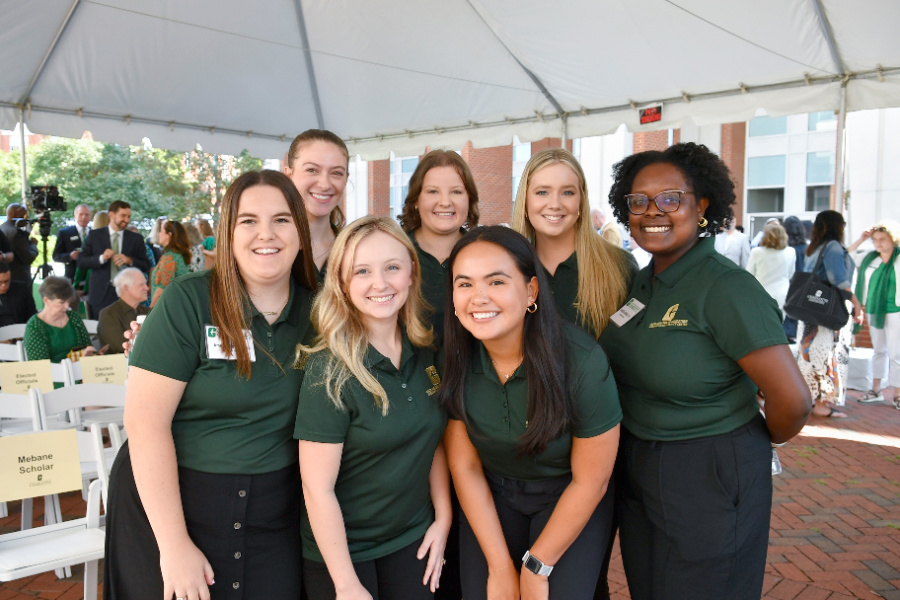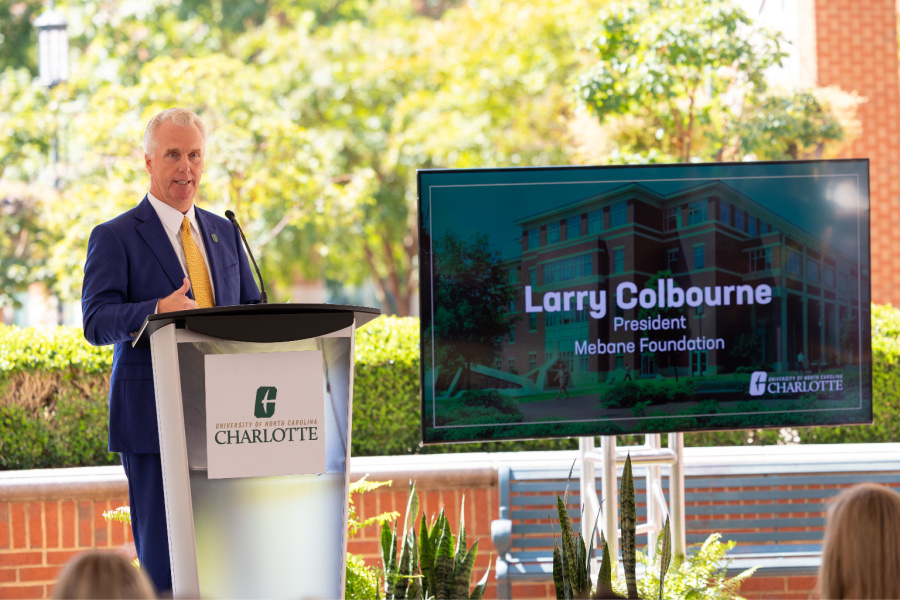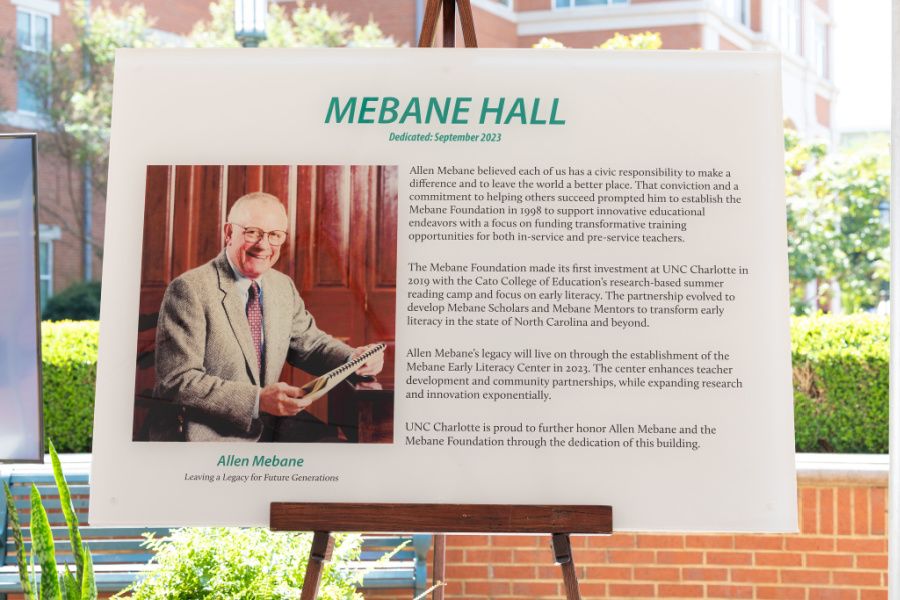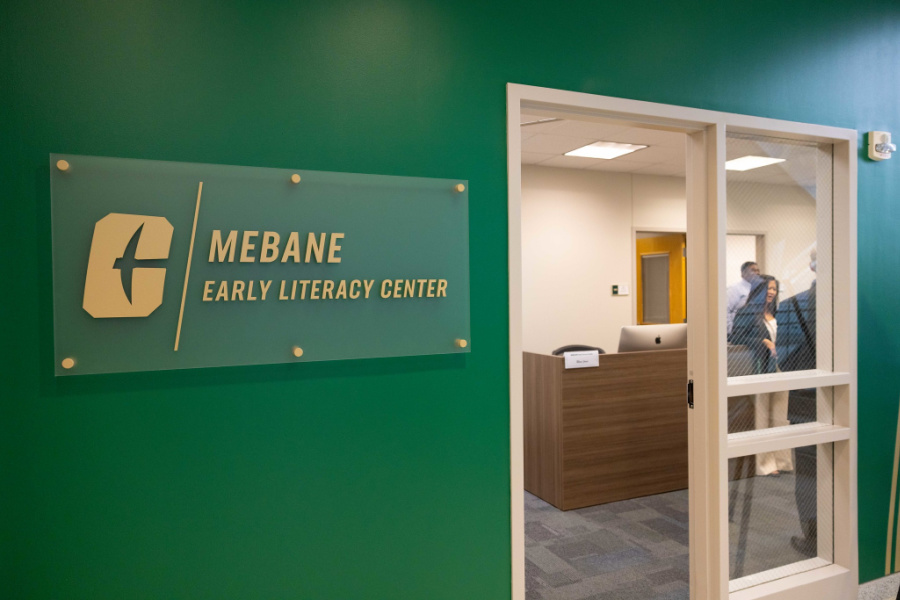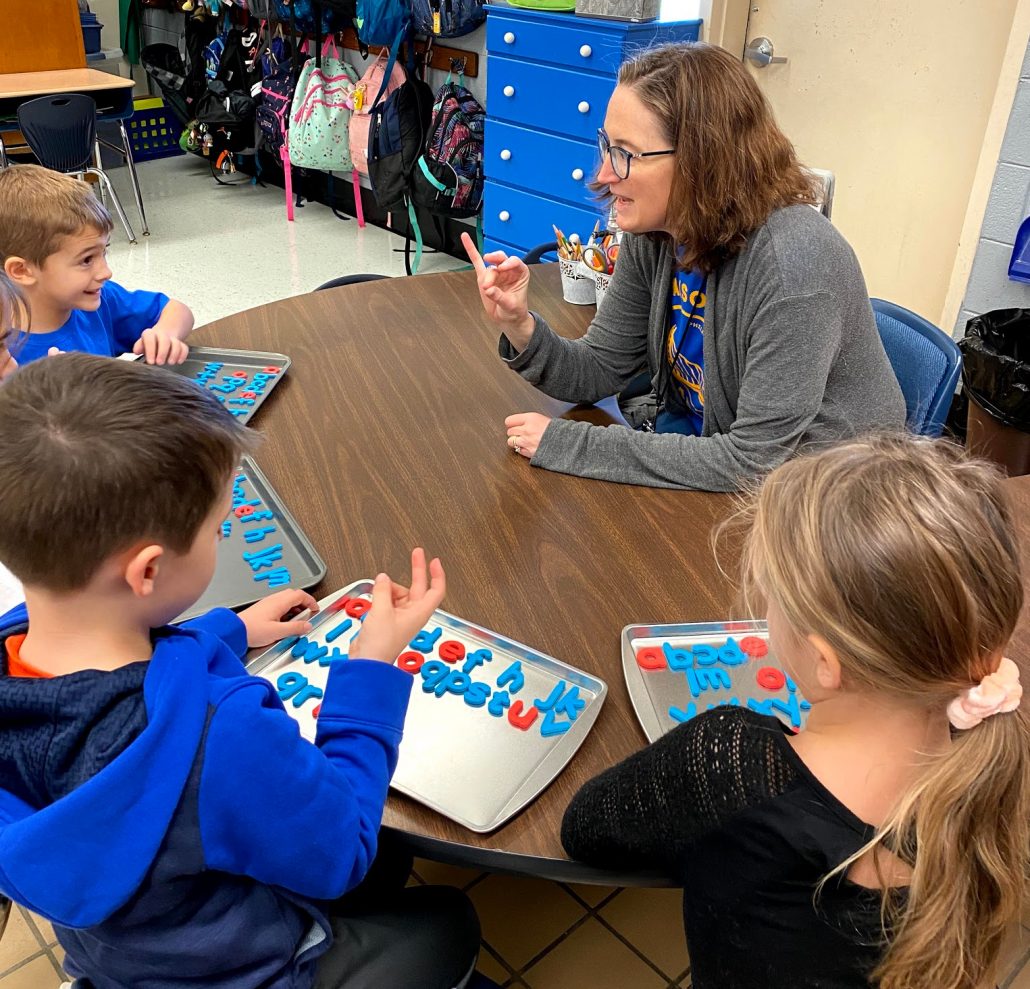New Education Center Dedicated in Honor of Allen Mebane’s Commitment to Education in Davie County
By Meredith Ratledge

Davie County Schools has named its new central administration building the Mebane Education Center in honor of the transformative gifts the Mebane Foundation has given to the school system in support of early literacy.
Over the past 25 years, the Mebane Foundation has gifted nearly $8 million to educational initiatives in Davie County, including DavieLEADS, Mebane Master’s, Hill Center reading programs, the Mebane Technology Challenge, and the construction of preschool buildings at each elementary school in Davie. Given the Foundation’s long-standing commitment to the school system, a citizen recommended naming the facilities after Allen Mebane.
The community gathered to celebrate the opening of the Mebane Education Center with a ribbon-cutting ceremony on November 28th.
The ceremony marked a significant milestone for the school system and the larger community, fulfilling a plan set out with the bond referendum passed back in 2014 to build the new high school. Included in the passage of the referendum vote was a plan to convert the original high school building into central school administration offices.
Celebrating a Milestone
Davie County Schools Superintendent, Jeff Wallace shared opening remarks during the ceremony.
“Today, we’re here to celebrate the opening of the Davie County Schools Mebane Education Center, but we’re also here to actualize an idea and to fulfill a pledge we made to the citizens of Davie County in 2014. We said that we would renovate and occupy this facility with the same purpose of serving children. And that’s what we’re here to celebrate today,” Wallace stated.

“This renovation brings together many departments under one roof, allowing an environment of improved communication and collaboration to ultimately better serve the children of Davie County.”
He thanked the Mebane Foundation, Board of Education, Board of Commissioners, and Davie Construction for their contributions and support throughout the process.
“Many of you have poured into what’s happening today, and you’ve poured into students. That encourages us and helps us stay focused.”
“What you’re doing is truly working for those kids. Let’s not forget that,” he said.
Honoring a Legacy
Larry Colbourne, president of the Mebane Foundation, smiled as he welcomed those present at the ceremony.
“On behalf of my board, and Marianne Mebane especially, thank you for naming this building after the Mebane Foundation. It’s a real honor,” he stated.
“This is actually bittersweet. Davie County Schools meant a lot to Mr. Mebane. For years, Allen tried to get a new high school built, but he never got to see that come to fruition.
“If Allen were here today, he’d be so happy and so proud to have his name on this building. He’d be proud of the school system, the county, and everybody. He’d be proud of the new high school. But he’d be even more proud of what you’ve done with this facility, that you took this building and made something of it,” he continued.

Colbourne continued to touch on the collective efforts that culminated in the facility’s reopening.
“When I think about philanthropy, I think about the three T’s – your time, your talent, and your treasure. Everybody gave one of those T’s; in some cases, some of you gave all three. As we go forward together as a community, let’s continue to do that. That’s what Allen would want.
“At the end of the day, for Allen Mebane, it was about community and bringing people together. He was a catalyst for much of this; it was all about the kids. That’s what mattered to Allen.”

A New Face to Davie County Schools
The original building opened in 1994 and closed in 2017 when Davie County High School moved to its current location on Farmington Road. The $6 million in renovations to the new Education Center were completed by Davie Construction, who began working on the facility in June of 2022. In just one year, staff began moving into the new building, which occurred in phases as the space was readied and finalized.
The opening of the Education Center means that district-level leadership formerly at Central Davie and Cherry Street are now housed in one facility. The offices on Cherry Street previously encompassed finance, human resources, curriculum, and superintendent staff, while those at Central Davie included accounting, student services, nurses, and student workers.
The new facilities are located in the former “K-building” and library of the old Davie County High School, which is now adjacent to Davie County Community Park. In addition to staff offices, the building houses the virtual school, computer lab, and several conference and training rooms. There are conference rooms for life skills and workshops and kitchen facilities. The largest conference room facilitates teacher training and monthly Board of Education meetings.





Staff members were eager to express their excitement for the new space. Jinda Haynes, assistant superintendent, shared, “This allows everyone to come together. It’s unbelievably helpful for us all to be all in one building. To have the people you need right across the hall is tremendous.”
The staff on-site includes the administrative departments, student and social services, literacy specialists, as well as nurses, psychologists, and physical therapists. It serves as the home base to around sixty employees, about forty of whom are based there daily. The remainder are often out in the county, moving between the different schools and students they serve.
Wendy Horne, the Davie County Board of Education chair, noted her admiration for the foundation as she ended the ceremony.
“I can’t think of anyone better than the Mebane Foundation for this facility to be named after. Their mission statement is ‘preparing children for life through literacy.’ One thing I’ve always admired about the Foundation is that that’s always been 100% evident in everything they do. Their mission has always been front and center. And I applaud you all for that.” she remarked.

“Thank you all for everything you’ve done, and thank you all for coming out. It really is a beautiful facility and something we should all be proud of.”
The Board of Commissioners, Board of Education, staff members, and Davie Construction were invited to participate in the ribbon cutting. A tour of the facilities followed, where attendees saw firsthand how the former high school was transformed.














